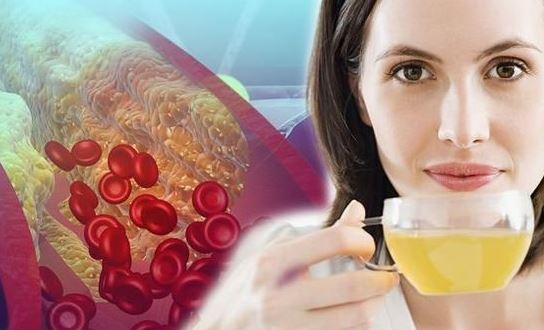Tea and cholesterol levels | |

| |
High cholesterol levels can pose significant health risks, such as heart disease and stroke. While adopting a healthy diet and lifestyle is key to managing cholesterol, research suggests that certain types of tea may offer potential benefits in maintaining healthy cholesterol levels. In this article, we will delve into the relationship between tea and cholesterol, exploring the potential impact and the science behind it. Understanding Cholesterol and Its RoleBefore we explore the impact of tea on cholesterol, let's briefly understand cholesterol and its role in the body: Cholesterol is a waxy substance produced by the liver and is also found in certain foods. It plays a vital role in the body, being involved in the production of hormones, cell membranes, and bile acids. However, high levels of LDL (low-density lipoprotein) cholesterol, often referred to as "bad" cholesterol, can contribute to the formation of plaque in the arteries, leading to atherosclerosis and other cardiovascular issues. The Potential Benefits of Tea on Cholesterol LevelsSeveral types of tea have been studied for their potential impact on cholesterol levels. Let's explore some of the most notable ones: 1. Green TeaGreen tea is rich in antioxidants called catechins, particularly epigallocatechin gallate (EGCG). Studies have shown that EGCG may help reduce LDL cholesterol levels and increase HDL (high-density lipoprotein) cholesterol, often referred to as "good" cholesterol. Green tea consumption has also been associated with improved lipid profiles. 2. Black TeaBlack tea, a widely consumed tea variety, contains compounds known as theaflavins and thearubigins. These compounds have shown potential in reducing LDL cholesterol levels. Regular consumption of black tea has been associated with modest improvements in cholesterol profiles. 3. Herbal TeasCertain herbal teas, such as hibiscus tea and rooibos tea, have been investigated for their potential cholesterol-lowering effects. Hibiscus tea, in particular, has shown promise in reducing LDL cholesterol levels. However, more research is needed to establish a conclusive link. Frequently Asked Questions (FAQs)Let's address some common questions related to tea and its impact on cholesterol levels:
ConclusionTea, particularly green tea and black tea, shows promise in potentially benefiting cholesterol levels. The antioxidant-rich nature of tea, along with specific compounds found in different tea varieties, may contribute to the reduction of LDL cholesterol and the improvement of overall lipid profiles. However, it is important to remember that tea alone is not a magic solution for managing cholesterol. A healthy lifestyle, including a balanced diet, regular exercise, and medical guidance, plays a crucial role in maintaining optimal cholesterol levels. As always, consult with a healthcare professional for personalized advice and guidance. | |
| Views: 234 | | |
| Total comments: 0 | |